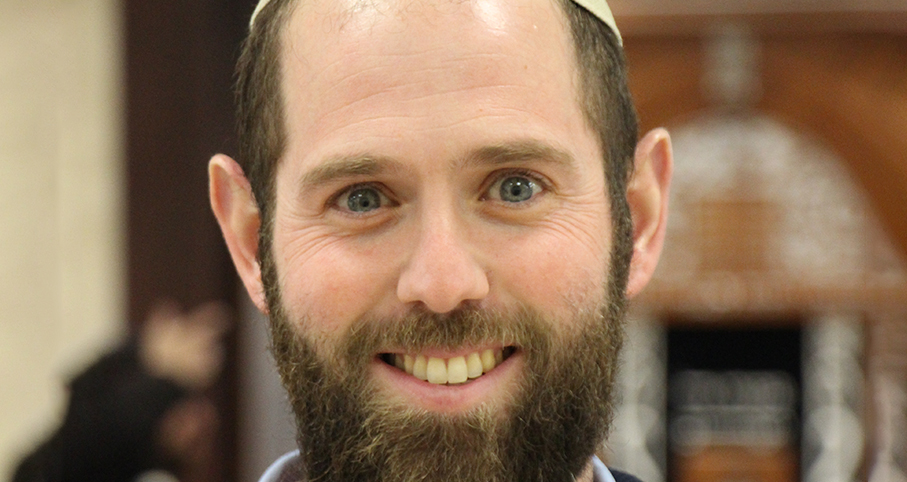Beit Midrash
- Jewish Laws and Thoughts
- Texts of Jewish Thought
- The Book of Kuzari
1. "Your words appear quite logical as such, but they do not provide a reply to my question, because I know of myself that my soul is pure and my actions are just and conform to the will of the Creator, but in spite of this, I was told that my actions are not desirable, although the intention is. This means that there definitely exists a certain action that the Creator desires not as a means of purification of the heart, but as an end in itself."
The King of Kuzar is certain that there is a desirable act, that is – there is truth in the world because he was told so in his dream: "Your intention is desirable to the Creator, but your deeds are not desirable" therefore there exists a desirable deed. He is an honest and good man, just as the Philosopher claims he should be, but he is still told in a dream that his deeds are not desirable, and the King of Kuzar is certain of the truth of his dream.
But this is a conclusion that stems from the "plot" of the story, not from life itself. Perhaps the King of Kuzar can be sure that there is a truth in the world because that is what was told to him in a dream, and therefore he personally can reject the words of the Philosopher, who claims there is no correct act, and that the main thing is to transcend [in the mind], but what do we answer the Philosopher? Certainly we would not rely on the dream of the King of Kuzar when it comes to the Jewish worldview. So from where do we prove that there is a specific truth, and through that, that the words of the Philosopher are incorrect?
2. "If this were not so, then why does Christianity wage war on Islam, and they divide the world between them? Although each of them purifies his soul and wishes [communion with] G-d, practices continence, fasts and prays, etc…"
The Kuzari’s answer to the Philosopher is that there are religions [that call for moral action, not just moral intent] that have a huge impact on the world, and people cling to them with all their might as if it’s a matter of life and death. Therefore, according to him, truth is found in any religion, as opposed to the Philosopher, who says there is no particular truth. But does the fact that people behave in a certain way prove that it is truth? Certainly not, even if many people act that way. Certainly popular things should be taken seriously, but it does not prove that they are the truth.
So what is the Jewish response to the Philosopher?
I would like answers that are not based on Jewish sources, but rather on life itself, since I am coming to examine and build emuna from the ground up, from scratch. (Basing it on sources that require already having emuna is beyond the level where I am currently holding.)
A. The King’s answer to / rejection of the Philosopher is from life itself and not from philosophical thoughts. The dream expresses the inner demand of Man, that urges him throughout the day to find meaning in his life, meaning in his existence, content that encompasses and penetrates all parts of his life. And so he seeks the desired actions and is not satisfied with just feelings or thoughts.
Also, the statement regarding the major religions does not require that they be right in everything they say. The King’s contention is that a soulful-spiritual claim, so deep and powerful that it motivates entire societies for generations to fight each other and even die for it, teaches that it is a true and real need, and to treat it with contempt, as the Philosopher does, is a mistake and a misunderstanding of actual reality. It is living in an abstract imagination of the world.
We can liken this to a person describing in this fashion something that he saw: There is an encounter of two bodies with a similar body structure but of different sizes. Due to neural signals, commands were sent to the tendons that caused stretching of the organs located on the sides of those bodies. The tiny body responded quickly and the hormone secretions caused it to move at a rapid pace to the middle of the large body. Then the lateral organs of each body closed around the other body and moisture filled their faces.
This is a tedious (and of course, scientifically inaccurate, etc.) description of an emotional encounter between a mother and her son. There is truth in the practical/biological description, but to give it the appearance of being the all-encompassing truth, and thus to experience life as such – this is a mistake.
This is what the King said to the Philosopher – you speak well, but you do not live. You reduce the whole essence of life to one thing – the mind. In any case, you cannot provide all people with wisdom that can elevate and give deep meaning to all parts of life.
And so the King realized that that which he requests would be found elsewhere.

Rabbi Elyashiv Kafka
A Ram in Yeshivat "Avinoam" Tapuach

How Can I Trust the Truth of Sinai?
Kislev 8 5783

How Can We Know That There Exist Desirable Deeds?
Translated by Sharona Eshet-Kohen
Adar 2 5781

Yom Ha'Atzmaut - A Holy Day?
Nissan 29 5781























